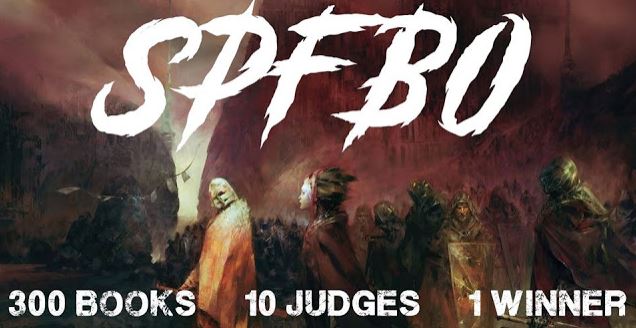
Hello everyone and welcome to our latest author interview for the 7th annual Self Published Fantasy Blog Off! I’ve been working on reaching out to each of the authors who have landed in our batch of books for the competition to see if they would be interested in being interviewed or contributing a guest article in an attempt to drum up a little extra excitement for their book and (hopefully) get to know them a bit better.
Today, we are joined by the author of Up Against Mooneye, Mikkel Høst!
If you want to check out the rest of our SPFBO coverage, be sure to check our SPFBO 7 landing page here. On to the Q&A!
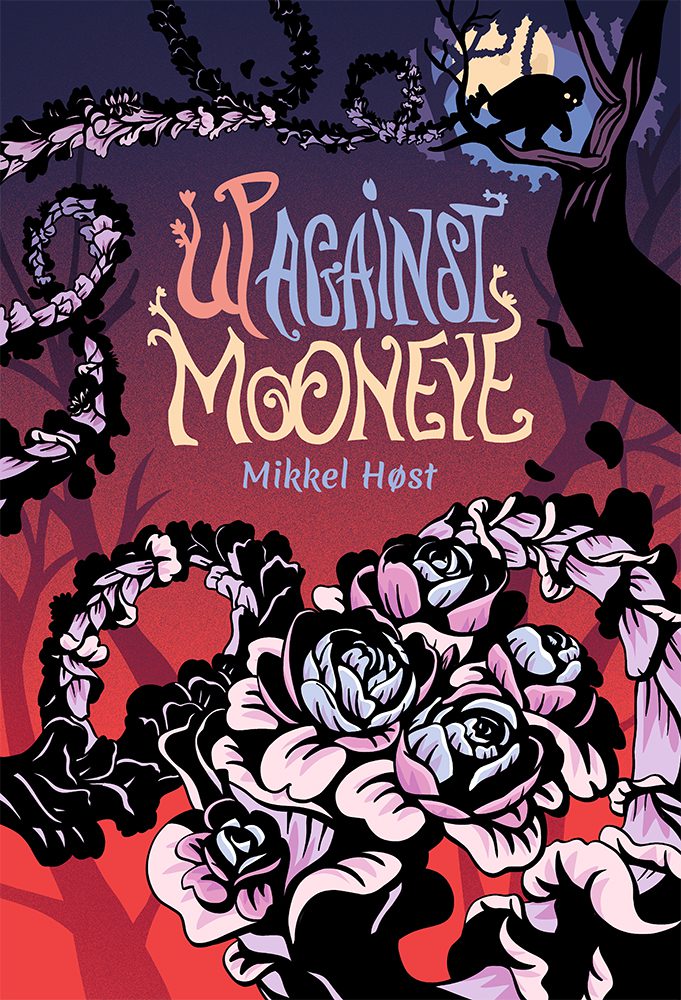
Thank you so much for joining us for this short Q&A! Before we get going, please tell us a bit about yourself.
Hello! I’m Mikkel, and I’m a Danish fantasy author from a family of carpenters, electricians, fishermen and shop workers.
I like sunshine, trance music, wine, dogs, absurdism, pasta and stories that take me to fantastic places, and I am beyond flattered to be the subject of this interview and to make an appearance here on FanFiAddict.
I want to start things off by asking: what is a great book that you’ve read recently and why should we give it a go?
I actually have a recommendation for another indie book, which is The Headlock of Destiny by Samuel Gately. This is a fantasy novel that combines what I assume are three of the author’s favorite things: High fantasy, wrestling and beer. I gave this book a shot because I was charmed by the premise, and it is every bit as fun as it sounds. The story just lived up to my expectations so well, but it also gave me some interesting world-building that surprised me with how smart it is.
You don’t have to be hardcore into wrestling to like this book. I’m not, and I still had a blast with its colorful characters and exciting world. I have yet to read the sequel that came out this year, but I’m very excited to get to it.
Do you have any hobbies or interests outside of reading/writing? Do you care to elaborate?
There’s a few, yeah. I’m in the habit of jumping from one thing to another.
One of my more enduring hobbies is playing video games. I’ve done this since childhood and never really stopped until this year, when I decided to take a break and catch up on other things. My taste here mostly revolves around action, be it shooting, sword-fighting or martial arts, and I tend to latch onto games that feel satisfying to control.
I also enjoy physical workout and miss going to the gym. Throughout the last year or so, I’ve been trying to compensate by doing exercises at home. It’s a good thing my apartment is spacious enough. I’ve tried to make a habit out of running too, but it didn’t stick. Maybe I’ll give it another shot.
Tell us about your road to writing. What made you want to become an author?
Ever since childhood, I’ve always had a deep desire to tell stories. Fun stories; ones that had my unique perspective yet fueled with the inspiration of all my favorite things. I didn’t have the best ideas back then, nor did I think myself good enough to ever make it as anything. It was just a daydream. It arguably still is, but at least I managed to produce something real.
It all started with an attempt to put a scene from a story in my head down on paper, just to experience what that would feel like. It felt very, very good. I was having characters voice some thoughts that had been stuck in my head for years, and it was a huge relief. So I never stopped. I kept writing scenes from this same story, jumped around, built a structure to help me connect the dots, rewrote scenes as I introduced new ideas… until I suddenly sat there with 80.000 words. At that point, I felt it would be silly not to go all the way.
I had a bit of a revelation one night during those years, when I was trying to fall asleep (a feat I’ve never been good at). Pirate stories are a genre of fiction that I’ve often felt have been underdone, and pirate fantasy in particular has a lot of untapped potential. I was thinking about how unfortunate it was that stories like that seemed to be so rare when I realized that I was able to make my own pirate stories. I had already written a good chunk of one novel that I felt confident I would finish, so this could just as easily be the next thing. This sparked a new passion in me. I want to write the stories that I feel are missing in the world.
Writing is a hard and lonely affair in the best of circumstances, but it can be even more so as a self-published author. How do you achieve a good work/life/writing balance?
I’m not always sure that I do. Sometimes I think about the wrong things at the wrong times, and the balance suffers a little. I wish I could limit my ideas to only come when I’m at the keyboard, like having opening hours for my brain. Instead, the ideas like to break and enter, rushing in when I should be focusing on something else.
My family helps me a lot when it comes to keeping in touch with life, but I also make sure to take my own breaks and see some new scenery every now and then. Although I still take my laptop with me on vacations and try to squeeze some writing in whenever I can.
Is this your first book? If so, what lessons have you learned from writing it? If not, what lessons did you learn from writing earlier books that you brought into this one?
Yes, Up Against Mooneye is my first, and so far my only complete novel. I learned a lot of technical stuff about how to publish through Amazon and Google, but that’s not very exciting.
Pacing has to be the big lesson here. I can’t think of anything more important to get right as a new author who has to convince readers to invest their time into reading my work. I made like a thousand notepad documents around the time I was getting done with this thing, and one of them is specifically about pacing. In this document, I go over all the events of the story to get a sense of how everything is spaced out, marking every fight scene with the word ‘FIGHT’ in bold letters. As a bonus, I even rank all fight scenes based on personal opinion.
Another one is that I have learned to limit adverbs. Those words have their place, but paragraphs can become a little tedious if there’s too many of them, and I would have used fewer if I had been writing the story right now.
The most valuable lesson may be how to better spots story elements that are overdone or – perhaps more importantly – undercooked, so that I can either remove them or work with them in ways that benefit the story. This is something I assume I’ll continue to get better at.
Do you usually write to background noise, music, etc. or do you prefer silence?
If I ever write to complete silence, that’s pretty much always an oversight on my part. It’s like when I forget to adjust the seat when I drive a car that was previously driven by someone shorter or taller than me. Sure, I can manage, but it’s neither ideal nor deliberate.
My preferences vary between music and noise. I’ve made frequent use of Spotify, but these days I’m more likely to ride the noise train. Those YouTube videos that are just 8 hours of some specific atmosphere – the ones that popped up like dandelions last year because everyone had to stay inside – have been fantastic for my writing sessions. I can just put on hours of fireplace sounds and lull myself into the perfect state of mind.
Is this your first time entering SPFBO? Why did you decide to enter this book?
It is my first time, and I decided to enter because, while I don’t have iron hard confidence in my writing skills, I do believe in this story. I continue to enjoy thinking about it, and the characters in it, and their journey, and the mysteries they solve. On some level, I feel like I must have done something right.
SPFBO is such a great incentive to shine a spotlight on self-published authors. Of all the different resources given to us online, this feels like it has the most value in the long term, and it is the one thing that gives me the most hope of finding an audience.
What made you want to write in the fantasy genre? Do you write (or plan to write) in any other genres?
Oh, I absolutely want to dive into other genres. I want to at least dabble in all my favorites, and I’ve already worked on the beginning of a crime thriller that I’m very excited about. I’ve also got concepts for a horror story set in World War 1 and a long-running absurdist superhero comedy.
But fantasy was a good starting point because of the huge, grand, epic ideas it lets me explore. There’s something about making my own mythology that is so satisfying, and while Up Against Mooneye is hardly the biggest fantasy story ever told (not even close), there are still scenes in it that were absolutely thrilling to envision as I wrote them. How cool is it that I can just do whatever I want in my stories with no budget limitations? Marvel Studios can’t do that!
There are so many roads to releasing a book these days (which is wonderful!). Why did you decide to self-publish?
It’s the perfect way to protect my feelings. There can be no fear of rejection when there’s nobody to reject you!
On a more serious note, I wanted full creative control and a smooth process. Querying isn’t something I’ve ever tried, but it sounds stressful, and I just wanted this thing out.
Something about self-publishing just seems cooler too. Like you’re defying the whole world, refusing to participate in the old system and building your own destiny. The final version of Up Against Mooneye is a result of a collaboration of three independent people (myself, an editor and a cover artist), and there’s something so wonderful about that. Look at me, world! I’m a cool indie author working with cool freelancers to create cool art! Self-publishing is the future and the old ways are done!
Yeah. Anyway, I’ll probably try the traditional route next time. Just to give it a shot.
Are there any advantages or disadvantages to self-publishing rather than going the route of the traditional or independent presses?
I know so little about traditional publishing due to my own lack of experience, but I assume the biggest benefit is funding. The reason Up Against Mooneye is only available in ebook form right now is not because I have some deep-rooted fear of paper, but because I don’t have a lot of money for production.
Maybe I should have a fear of paper, though. It has hurt me before…
What is one thing that you love about the current state of fantasy and what is one thing that you wish you saw more of?
One thing I love about the current state of fantasy is that it feels very accessible. If, for example, there’s some super complicated magic system in place, I feel pretty confident that it will be explained to me in simple terms, and I won’t be left confused by it. Authors seem to take good care of these things. I also love that ideas like ‘fantasy meets wrestling’ are given life.
I’d like to see more diverse time periods and/or cultures used as inspiration for fantasy than just medieval Europe, as well as more original creatures and nature. You can do anything with this genre. Come up with some weird trees and weirder people.
Who are your favorite current writers and who are your greatest influences?
I struggle to pick a favorite anything these days because I’m too eager to discover new things all the time.
That said, the work of Paul Stewart and Chris Riddell has impressed me quite a lot. I’ve read 4 of their 13 Edge Chronicles books, and the imagination is just incredible. The world they’ve created is so strange and wonderful, distinct enough to become unforgettable. It’s full of incredible little details that I can’t help but love, such as the fact that the sky scholars are so obsessed with the sky that their classrooms are built vertically with desks attached to the wall. I’m weak for details like that.
Stephen King is another one. I know he’s the self-proclaimed ‘cheeseburger and fries of authors’ or whatever, but his Dark Tower series is so unpredictable and surreal in ways that I don’t think I’ve ever seen before. It’s inspiring.
What do you think characterizes your writing style?
Toughest question so far.
I really want it to be snappy dialogue. That one is very important to me. Bland or stiff conversations can take me out of a story like nothing else, and I really want to avoid that. It’s difficult, though, to keep that balance. Characters have to clarify things sometimes, and I can’t help but want to play up the drama every once in a while, but I still want most conversations to feel natural. I might have a long way to go, however.
Then there’s momentum. Another thing that can pull me out of a story is too many descriptions, so I try to make it so there’s always something happening. I try to slip the descriptions in between the actions.
Are you a plotter or a pantser?
A plotter, but I do wear pants.
I kind of have to be a plotter because of how unorganized I am as a person. If I just let myself loose, I fear the story’s focus would be gone. With set plot points to follow, I always know where every scene will lead, and I get to have these little mini-goals to achieve along the way.
Up Against Mooneye was written with a series of key sentences, which I expanded into a longer series of more specific key sentences before filling in the blanks. A lot of fundamental changes were made after this, and major story elements were removed while others were added, leading to several scenes being rewritten. It was a lot of work, but I found it all manageable after plotting my way to a first draft.
What are your favorite types of characters?
Funny characters that are more than comic relief. If you can give me a character that can make me laugh, only to turn around and get serious when the situation calls for it, then that character will probably become my favorite in the whole story.
As for more specific examples, I enjoy outlaws that are just the right amount of self-serving, without being outright cruel. There’s something liberating about following characters that are somehow able to dance around the law on their own terms. This is especially true in settings where the law is unjust and society is built on cruelty, and which case these anti-heroes almost become heroes outright just for defying this greater evil. It’s hard not to love the gentleman thief who plans to steal the evil emperor’s gold.
How much of yourself do you write into your stories?
Every character has a little bit of me in them. They struggle with the things I struggle with and like at least one of the things I like.
This isn’t something I do on purpose, but rather something that seems to happen on its own. Maybe I just need something to latch onto with every character I write, just to make them easier to understand.
For those who haven’t read Up Against Mooneye, give us the elevator pitch.
This is an all-ages story about the fate of sorcerers as they struggle against the mighty Mooneye, who has placed a limiting curse on every single one of them. Mooneye is a monkey creature of mysterious origin who has been around for a hundred years, with white flower petals instead of fur, predator teeth, a tail longer than most trees are tall, and, as the name implies, eyes that resemble the moon.
Up Against Mooneye follows Saolan Hu, an apprentice under the brilliant sorceress Meylen Nelso, as he tries to overcome his own personal difficulties to take on this much larger responsibility. It’s a story full of mad fight scenes in which sorcerers use their abilities to try and outsmart each other, as well as mysteries that pile on top of mysteries to reveal a staggering truth about the world.
Describe your book in 3 adjectives.
Wild, Colorful, Imaginative
What do you think is the overarching theme?
The big one would be self worth, since this story features a main protagonist who has to deal with his own shame and frustrations in order to succeed.
Another underlying theme is the difficulties of living in an unfair, chaotic world where even the mightiest sorcerers are put in positions that make them feel powerless to change things for the better.
Were there any specific challenges with writing Up Against Mooneye? Or, did you find anything to be easier?
It was pretty tricky to have characters be angry without having them swear.
No, but really, I think the hardest part was making all the pieces fit together. My ambitions for the scope of the world skyrocketed during rewrites, and the story had to change in order to make sense.
If you had to do so in just one or two sentences, how would you describe the plot of Up Against Mooneye?
A man is given the opportunity to become a sorcerer’s apprentice if he agrees to fight a large monkey. Chaos ensues.
They say to never judge a book by its cover and maybe that’s true in the philosophical sense, but it certainly happens with books. Can you tell us about the idea behind the cover of Up Against Mooneye?
The idea came to me soon after I decided to completely redo the story’s villain. Well, to be more honest with myself, it was more of a decision to put some actual effort into this character. This was the most monumental change the story by far, because the final idea left me so satisfied that I decided I wanted this character in the spotlight.
Mooneye’s tail is a long, white thing covered in white flower petals, and I wanted that visual to be central to the cover. My first idea was to have the tail sprout from the title logo on a clean, blue background.
I found an artist on Reedsy named Florian Garbay and pitched him the idea, and he was excited to do the work. He returned to me with two variations: One that was very close to the pitch, and a different one that included Mooneye’s silhouette in the upper right corner, a distant shadow among the treetops. It had the same vibe as one of those blurry Bigfoot photographs, and something about the composition just hit me like a ton of bricks. I chose to go with the latter, and I’m very glad I did. Florian is a great artist, and I think his final cover art matches the spirit of my intentions so well despite the differences. You still see the tail of this strange, mythical creature coming at you, but it’s more clear than ever that it’s supposed to be a monkey’s tail now that you can actually see the monkey.
One of my favorite things is highlighting quotes that really resonate with me and sharing them in my reviews. Do you have a favorite quote from Up Against Mooneye that you can share with us?
“Are you one of them? No, you can’t be. You’re too small!”
This is the first thing Mooneye says in the story, and there’s no explanation for it. Mooneye didn’t just become my favorite character in the story because of how his design turned out, but because of his character as well. He’s a very strange villain with very strange motivations, and this line first line to tease what he’s actually trying to accomplish with his actions.
What can you tell us about what’s coming up next for you?
My next project is one of those pirate fantasy stories I mentioned earlier. It’s called The Starmist Poet, and it follows a retired bounty hunter as he decides to relive his glory days by tracking down a mysterious figure who has all but declared war on his home nation’s government.
The Starmist Poet will be a longer novel that targets a much older audience and strikes a very different tone. I want to keep doing different things and challenge myself in different ways, but this story is might be a lifetime project. If all goes well, it will be the first novel set in a dark world where the clash between four parasitic lifeforms once came close to destroying all life. It’s gonna be so much fun!
Thank you so much for taking the time to answer a few questions for us! I always enjoy this little peek behind the curtain. Do you have any parting thoughts or comments you’d like to leave for our readers?
Thank you for allowing me this opportunity to get out some of the thoughts that clutter my head. I appreciate it a lot.
All I have to end on is this bit of advice: If you ever find yourself up against Mooneye, remember to watch for the tail!
About the Author
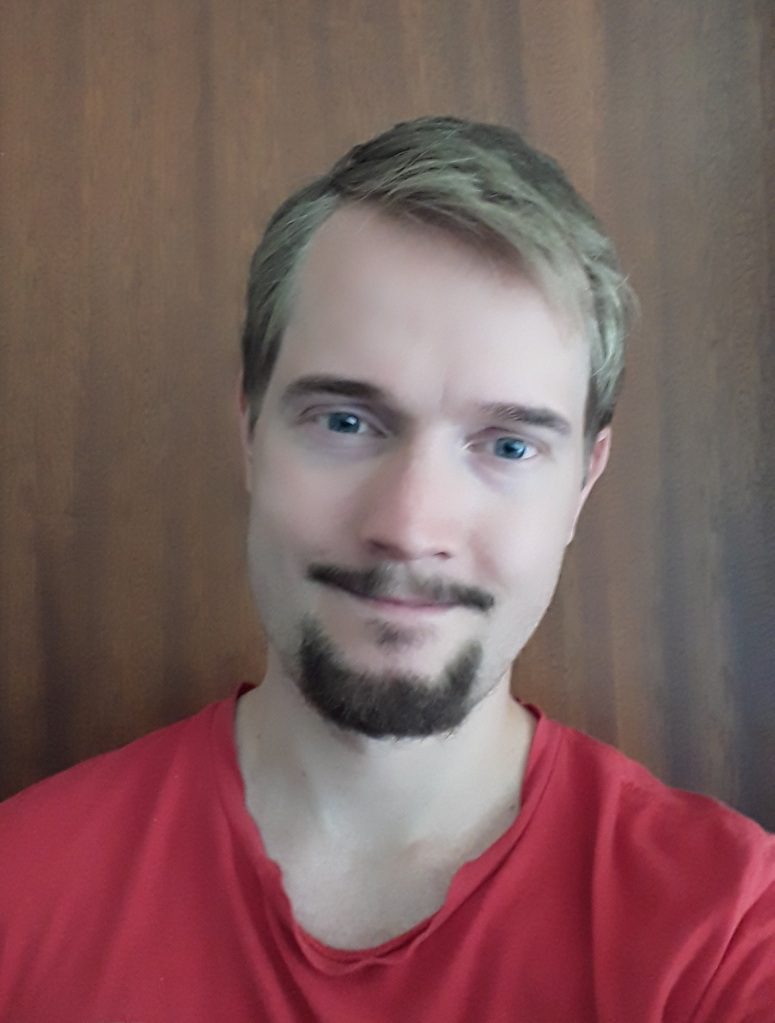
Mikkel grew up in a seaside town in Denmark. He has always had a fascination with adventure, mystery and mythology, picturing strange creatures that reside in spectacular places. He’s inspired by everything from books, movies and video games to the strange little moments that occur within his own life, as well as his own personal experiences.
In 2008, he dabbled in writing, but his ideas were too loose and his grasp on language too limited for it to achieve much popularity. This caused him to leave the dream behind and give up, but stories kept taking shape in his head, and the desire to entertain stayed with him.
Author Website:
https://upagainstmooneye.com/
Amazon Page:
https://www.amazon.com/dp/B08PHHBDFR
Goodreads:
https://www.goodreads.com/book/show/56140318-up-against-mooneye

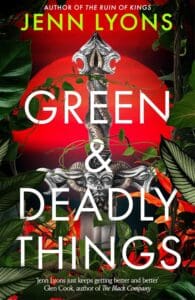
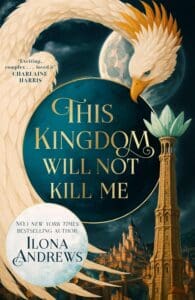
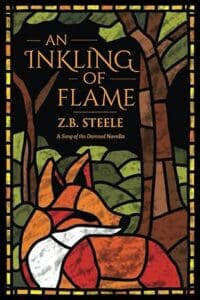
[…] Interview: Mikkel Høst […]